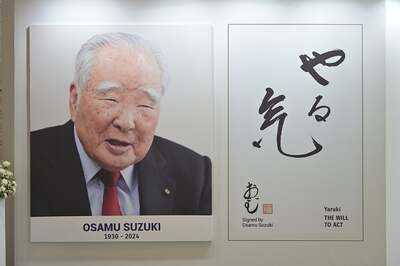
In a heartfelt tribute to the late Osamu Suzuki, former Chairman of Suzuki Motor Corporation, Suzuki and Maruti Suzuki India have announced plans to set up the Osamu Suzuki Centre of Excellence (OSCOE) in India. The announcement was made during a special remembrance ceremony held at Yashobhoomi in Delhi, honouring Suzuki’s lasting legacy and contributions to the global automotive industry. The proposed centre aims to carry forward his vision by fostering innovation, learning, and excellence in the Indian automotive sector. Osamu Suzuki passed away on December 25, 2024, in Japan.

Osamu Suzuki played a key role in shaping India’s manufacturing landscape by introducing Japanese practices that improved efficiency while also promoting fairness and inclusivity. His approach not only helped Maruti Suzuki become a household name but also contributed to building a more balanced and united society. Recognising his impact on India's industrial growth and his lasting legacy, the new Centre of Excellence will aim to promote his manufacturing philosophy. The initiative will help guide future efforts to make Indian manufacturing more competitive and sustainable.

The upcoming Osamu Suzuki Centre of Excellence (OSCOE) is planned to be set up in both Gujarat and Haryana, with a strong focus on boosting India’s manufacturing capabilities. One of its main goals is to support the country's mission of achieving high growth in the manufacturing sector. The centre will also work to upgrade the skills and standards of component manufacturers across all levels—tier 1, 2, and 3—making India’s supply chains more globally competitive. In addition, OSCOE aims to promote Japanese manufacturing principles by building infrastructure and launching collaborative programmes with academic institutions. These programmes will include lectures, seminars, and interactive sessions to share knowledge and best practices with future industry leaders.

Osamu Suzuki, born on January 30, 1930, laid the foundation for a remarkable career in the automotive world after completing his law degree from Chuo University in 1953. He joined Suzuki Motor Corporation in April 1958, marking the beginning of a journey that would later redefine the company’s global presence and significantly influence the automobile industry, including his transformative role in shaping India’s car market through Maruti Suzuki.